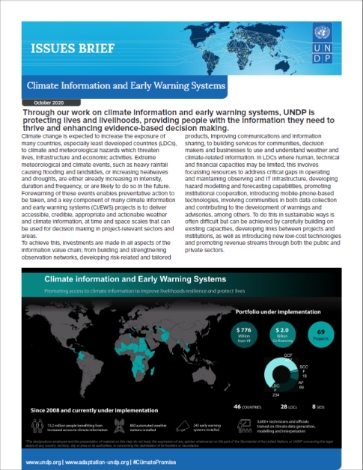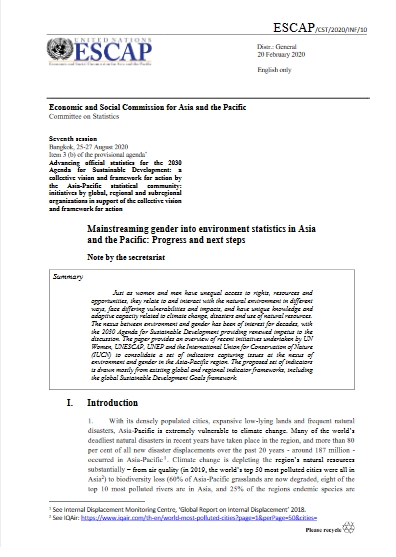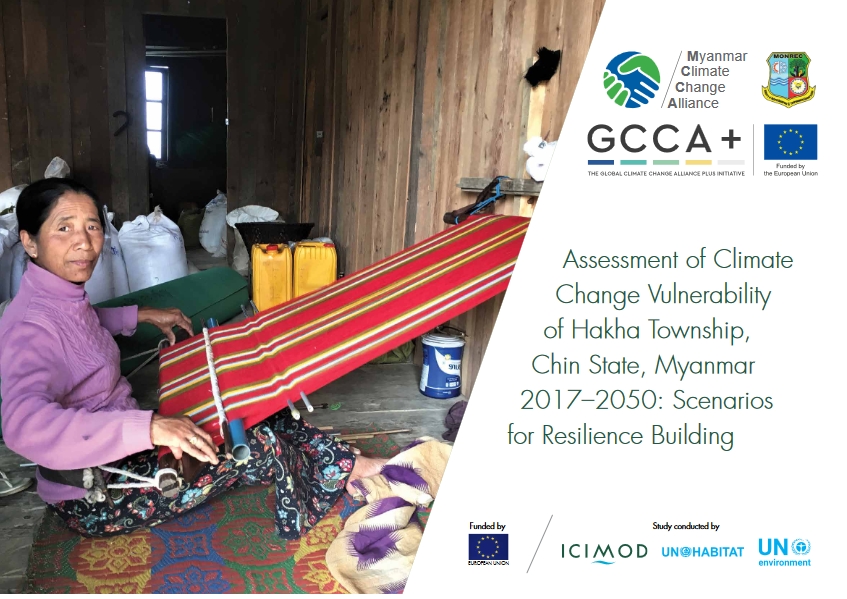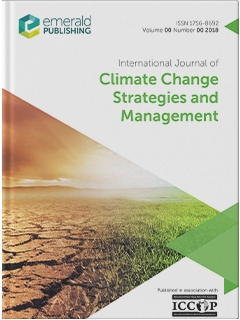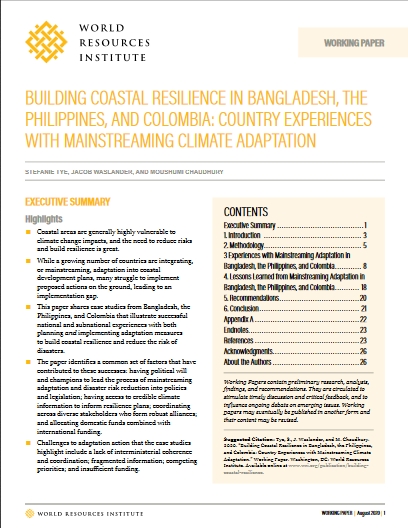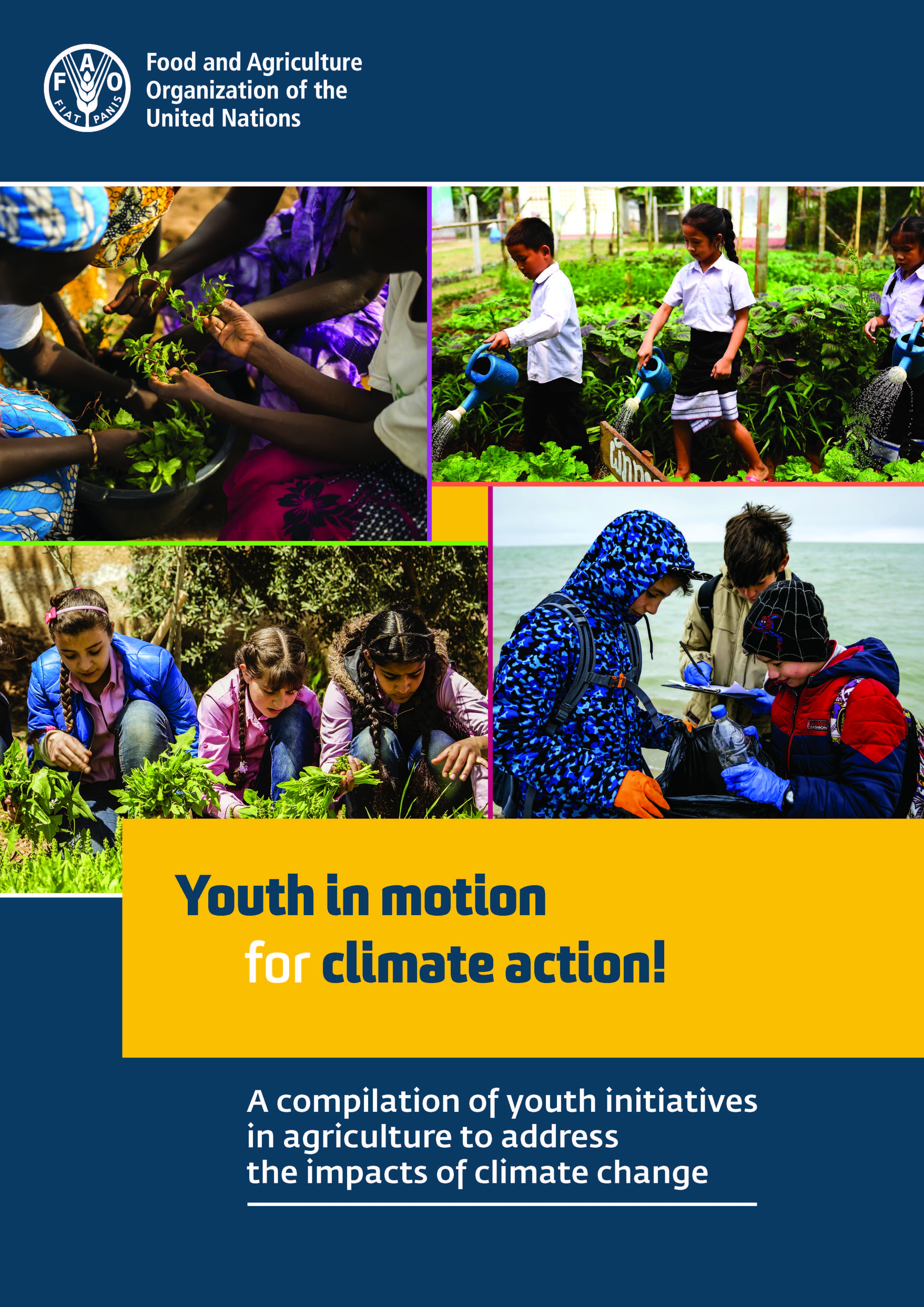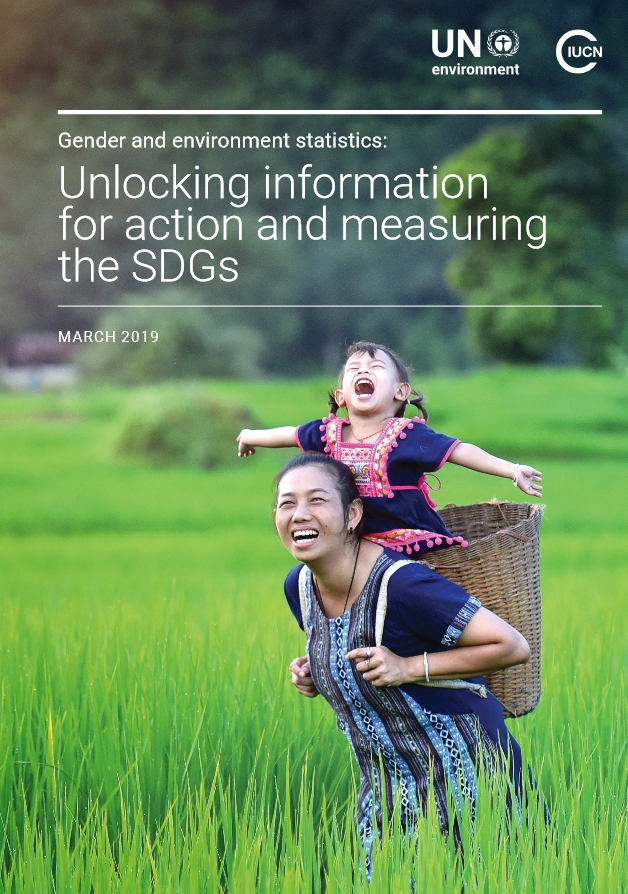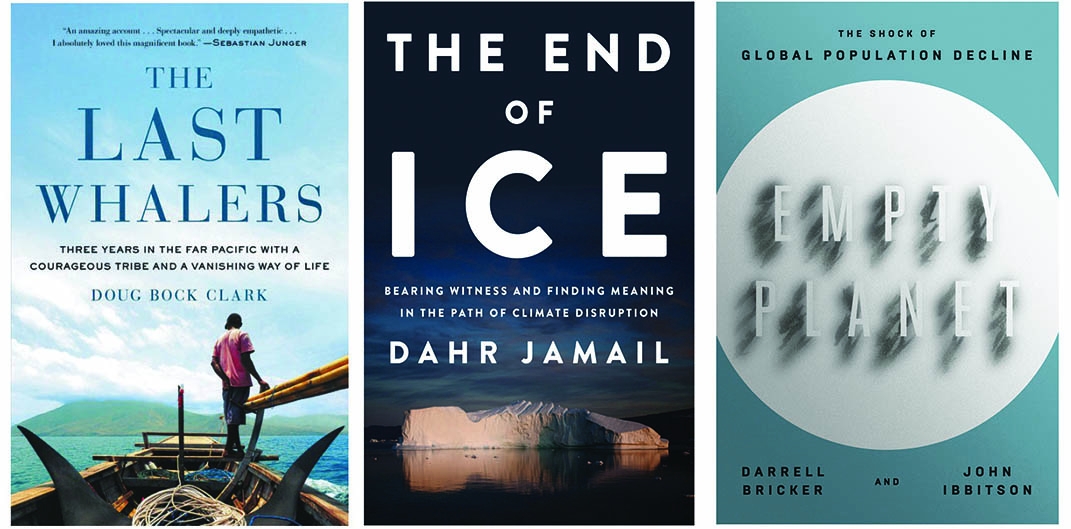Harvested Publications
Through our work on climate information and early warning systems, UNDP is protecting lives and livelihoods, providing people with the information they need to thrive and enhancing evidence-based decision making. Climate change is expected to increase the exposure of many countries, especially least developed countries (LDCs), to climate and meteorological hazards which threaten lives, infrastructure and economic activities. Extreme meteorological and climate events, such as heavy rainfall causing flooding and landslides, or increasing heatwaves and droughts, are either already increasing…
Just as women and men have unequal access to rights, resources and opportunities, they relate to and interact with the natural environment in different ways, face differing vulnerabilities and impacts, and have unique knowledge and adaptive capacity related to climate change, disasters and use of natural resources. The nexus between environment and gender has been of interest for decades, with the 2030 Agenda for Sustainable Development providing renewed impetus to the discussion. The paper provides an overview of recent initiatives…
This assessment analyses the vulnerability of the ecosystem, infrastructure, and socio-economic conditions in Hakha Township located in Chin State, Myanmar in relation to present and projected climatic conditions. It concludes that the current vulnerability of Hakha Township is high, and with the predicted changes in climate, decision-makers in Hakha Township will need to plan for increased flash floods and landslides, strong winds, increased temperature, and erratic rainfall with greater amounts of rain within a shorter monsoon season. The purpose of…
In the history of science there have been only a few issues which have mobilized the attention of scientists and policy-makers alike as the issue of climate change currently does. International Journal of Climate Change Strategies and Management is an international forum that addresses the need for disseminating scholarly research, projects and other initiatives aimed to facilitate a better understanding of the subject matter of climate change. The journal publishes papers dealing with policy-making on climate change, and methodological approaches…
More severe flooding and erosion, more intense storms, rising seas, increased salinization, and higher storm surges are some of the new realities around the world that make coastal areas particularly vulnerable to climate change impacts. This paper examines case studies from three regions— Bangladesh, Malabon City (Philippines) and Cartegana (Colombia) —that are making progress on integrating climate adaptation into planning and implementing on-the-ground actions to build coastal resilience. The paper identifies a common set of factors that have contributed to…
The number of people between the ages of 15 and 24 has reached 1.8 billion. According to the International Panel on Climate Change (IPCC) special report on the impacts of global warming of 1.5 degrees Celsius above pre-industrial levels, if current practices do not change, these young people will be living in a climate that will reach 1.5 degrees Celsius between 2030 and 2052 (IPCC, 2018). It is crucial that the voices of young people are heard, and that their…
The UN Development Programme (UNDP) and UN Climate Change (UNFCCC) have been working together since 2014 to support countries in developing Nationally Determined Contributions - or NDCs - beginning with the launch of a regional NDC dialogue series that just completed its 22nd event having engaged over 2,200 participants from over 150 developing countries. This report, leveraging those relationships and history, is the most detailed review yet of momentum since the Paris Agreement and is designed to both inspire and…
This report seeks to provide a framework to measure the nexus between gender and the environment. It proposes 18 gender-environment indicators for inclusion in the wider set of gender indicators, across the focal areas of right to land, natural resources, and biodiversity; access to food, energy, water and sanitation; climate change, sustainable production and consumption, and health; and women in environmental decision making at all levels. This report then presents enabling conditions at the national level, including through action research…
The assessment of impacts, adaptation, and vulnerability in the Working Group II contribution to the IPCC’s Fifth Assessment Report (WGII AR5) evaluates how patterns of risks and potential benefits are shifting due to climate change since 2007 when the Fourth Assessment Report (AR4) was released.
THE LAST WHALERSThree Years in the Far Pacific With a Courageous Tribe and a Vanishing Way of LifeBy Doug Bock Clark Our best bet for slowing down the planetary extinction we have set in motion is to focus on the collective. When we finally realize that we are in this together, that is when we will move away from our insatiable appetite for more. But we have precious few models that illustrate just what it means to know and act together, as…

